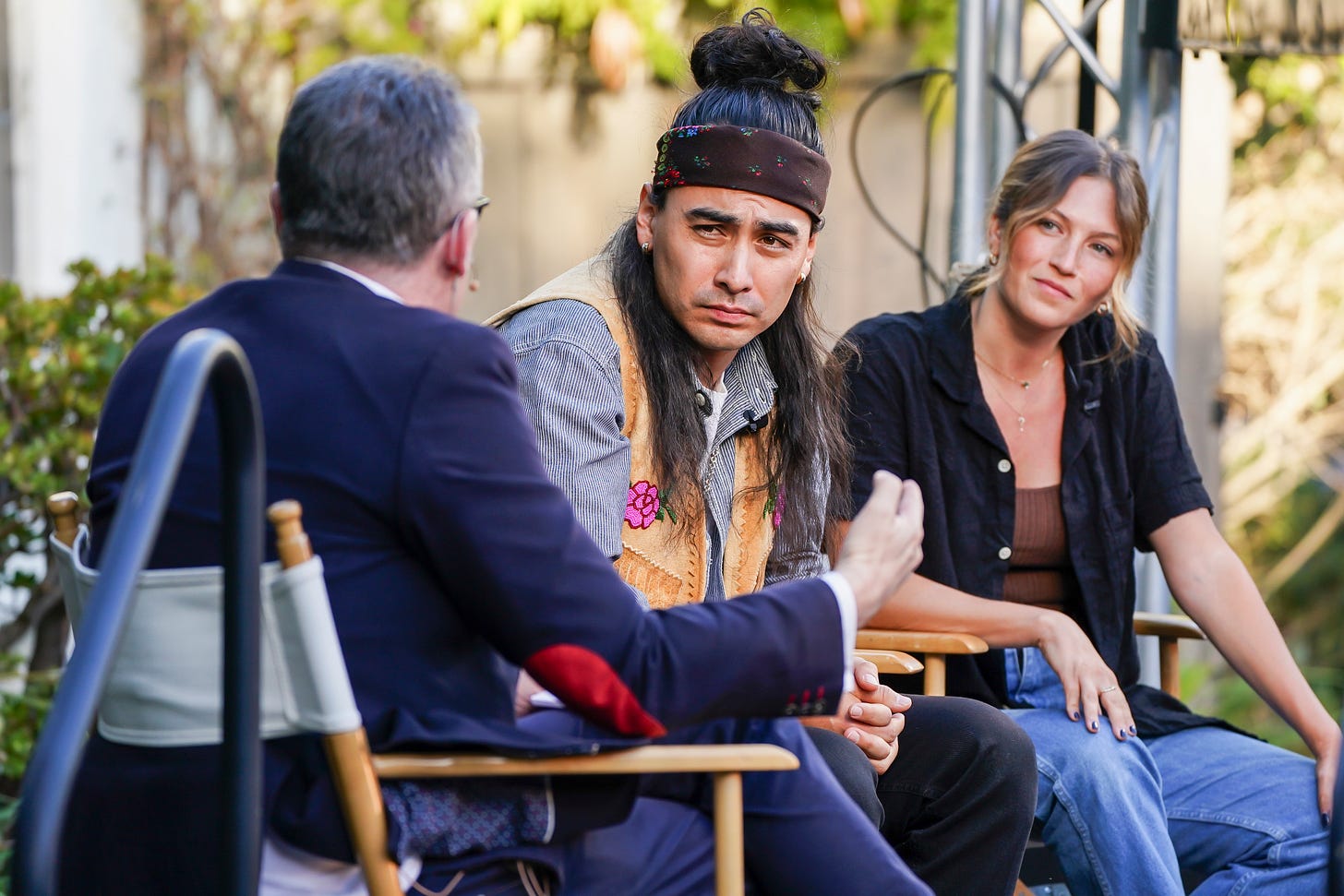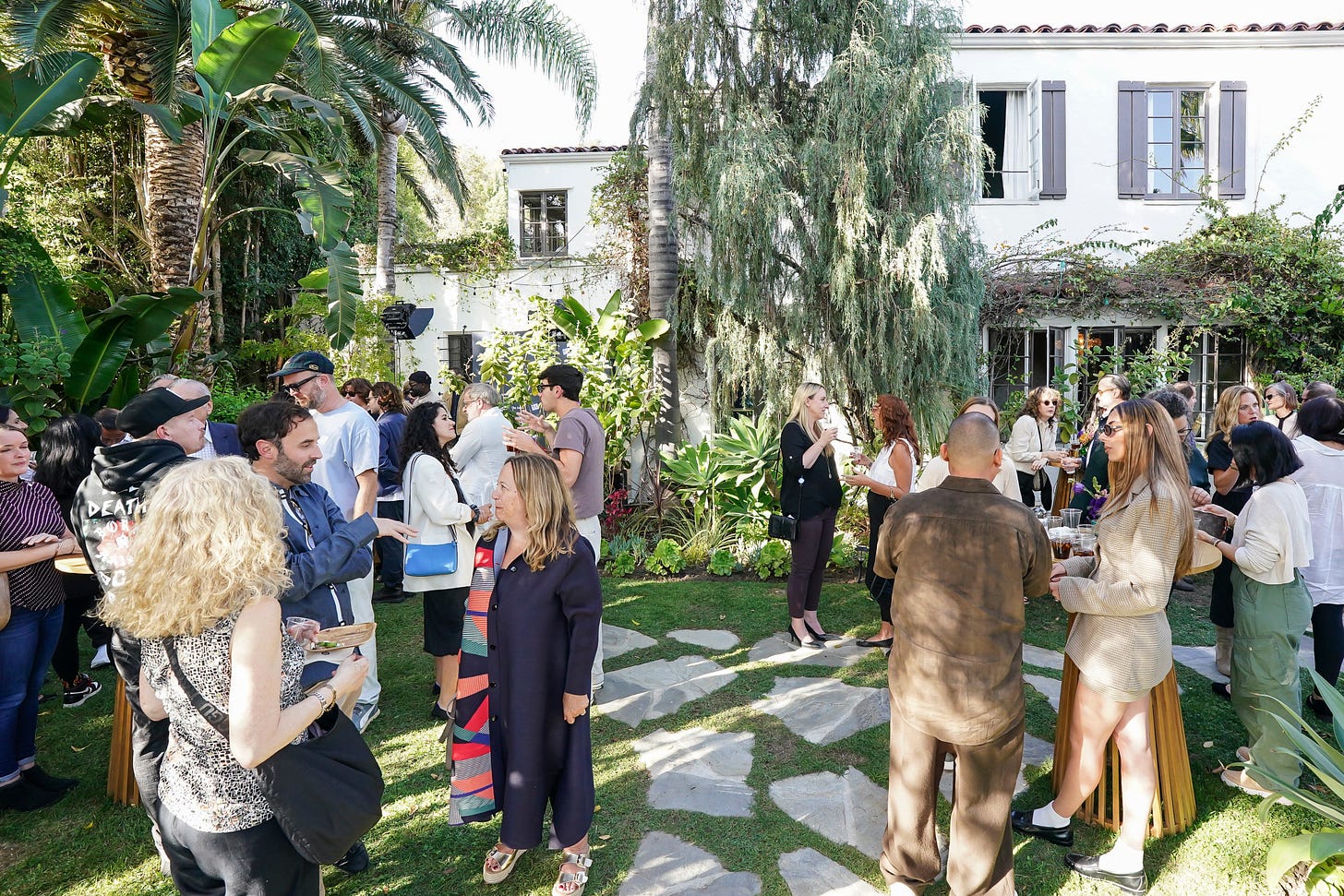Documentary Spotlight: West Bank, 'Will & Harper', Trump Nemesis
WATCH: Filmmakers behind Ukraine's 'Porcelain War', 'No Other Land,' 'The Last Republican', 'Daughters' and more at The Ankler & Pure Nonfiction live in L.A.
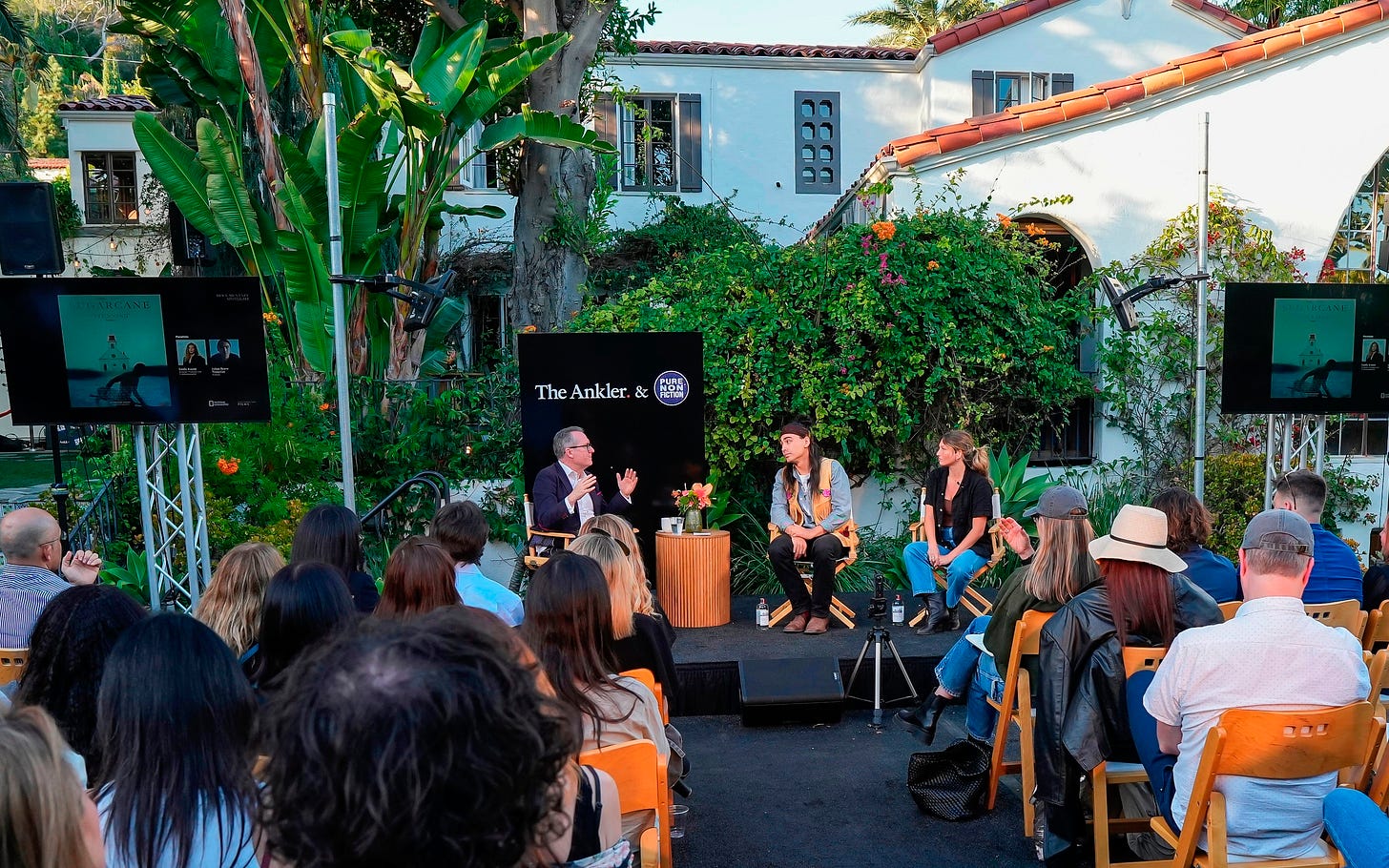
At AnklerEnjoy, the home for post-Ankler Events content, you can watch all of the documentary panels as well as view photos.
You can also listen to audio of these conversations with Oscar contenders in conversation with Thom Powers here and here on the Pure Nonfiction podcast.
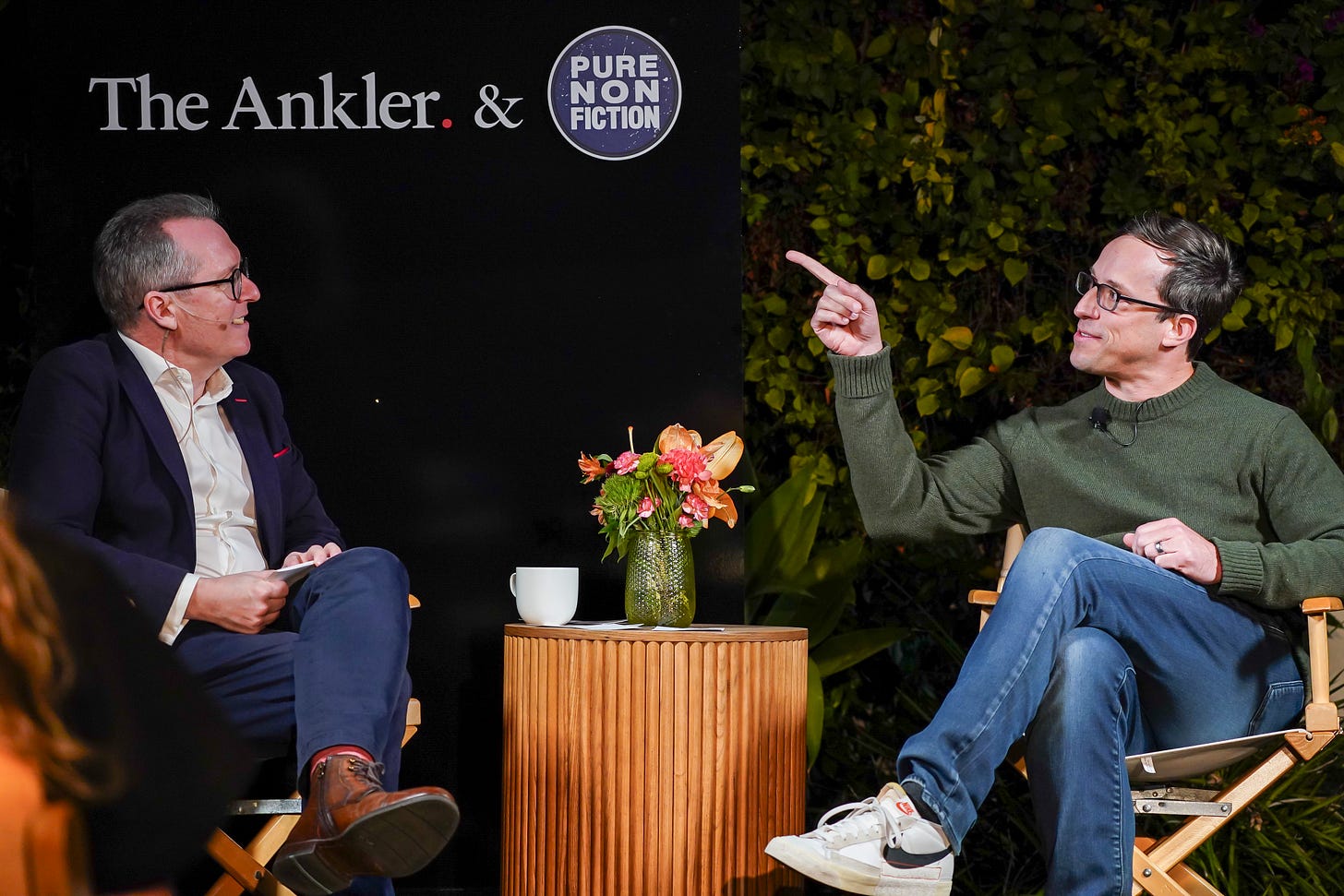
“This is the first doc I ever made where I knew my subject, where we were friends,” Josh Greenbaum, director and producer of Will & Harper (Netflix), said at the latest The Ankler & Pure Nonfiction Documentary Spotlight. But he understood why the stars of the story — Will Ferrell and his longtime collaborator, Harper Steele, who came out as a trans woman in 2022 — entrusted him with it.
“They needed a safe space to be able to open up, to feel vulnerable, but it was also critical that the film be funny,” said Greenbaum, whose feature credits include Barb and Star Go to Vista Del Mar and the raunchy dog romp Strays. “Comedy is their love language,” he added.
Greenbaum was one of several speakers at the event who cited vulnerability as a key element of great storytelling. Held on Oct. 18 at Vista House in the Hollywood Hills (special thanks to our hosts Senain Kheshgi and Natasha Joukowsky) and emceed by Pure Nonfiction’s Thom Powers, Documentary Spotlight presented conversations about eight Oscar-submitted films for an audience of some 150 industry insiders. Attendees included scores of AMPAS members (including Chuck Braverman, Lauren Greenfield and Cecilia Peck) as well as documentary executives Marjon Javadi of Disney, Tim Horsburgh of National Geographic and Adam Del Deo of Netflix.
Will & Harper, which follows its subjects on a cross-country road trip as they unpack Steele’s transition and its impact on their friendship, wasn’t always a safe space. Greenbaum said he and his subjects encountered “incredible warmth and acceptance . . . even empathy” in some unexpected places — such as an Oklahoma bar draped with Confederate flags. But they faced frightening hostility in others. Still, it was Steele’s “internal moments of pain and struggle” that challenged the director the most, he added. “I’m always protective of my subjects and my films, but there’s another layer when you want to keep filming something that is difficult and uncomfortable, but it’s also a friend on the other side.”
Steve Pink, director of The Last Republican (Media Courthouse Documentary Collective), likewise found a friend on the other side of the camera in Adam Kinzinger. As a political progressive, Pink was originally dubious about working with the former GOP congressman from Illinois who’s waged a lonely battle against Trumpism in his party. “But it was hard to deny the story about a guy who blew up a lot of his life to stand on principle,” Pink told Powers.
Kinzinger added in a video message that during filming, his relationship with Pink became stronger despite their ideological differences. “We grew to really respect each other and have an actual friendship now, and I’ve enjoyed that,” Kinzinger said. “And I hope that the rest of the country — and frankly, the rest of the world — can see that that’s a doable thing.”
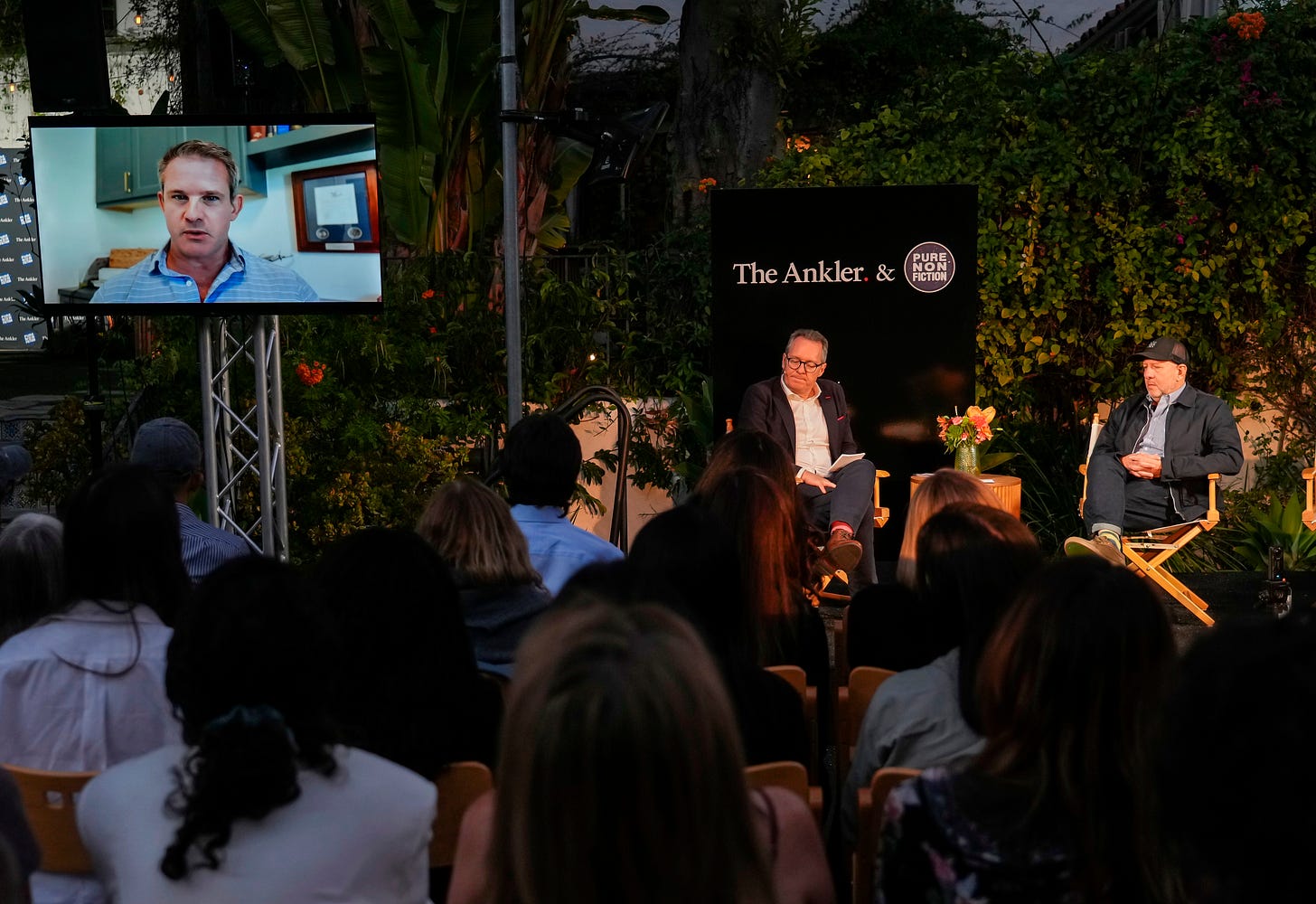
Palestinian lawyer and journalist Basel Adra and Israeli journalist Yuval Abraham, two of the four co-directors of No Other Land (Cinetic Media) also discussed — via a recorded Zoom from the West Bank — how their friendship informed their film. No Other Land chronicles five years of violence, destruction of homes and displacement of Palestinians by Israeli settlers and soldiers in the occupied region of Masafer Yatta. It also proclaims the filmmakers’ “shared struggle for a different kind of future,” Abraham said.
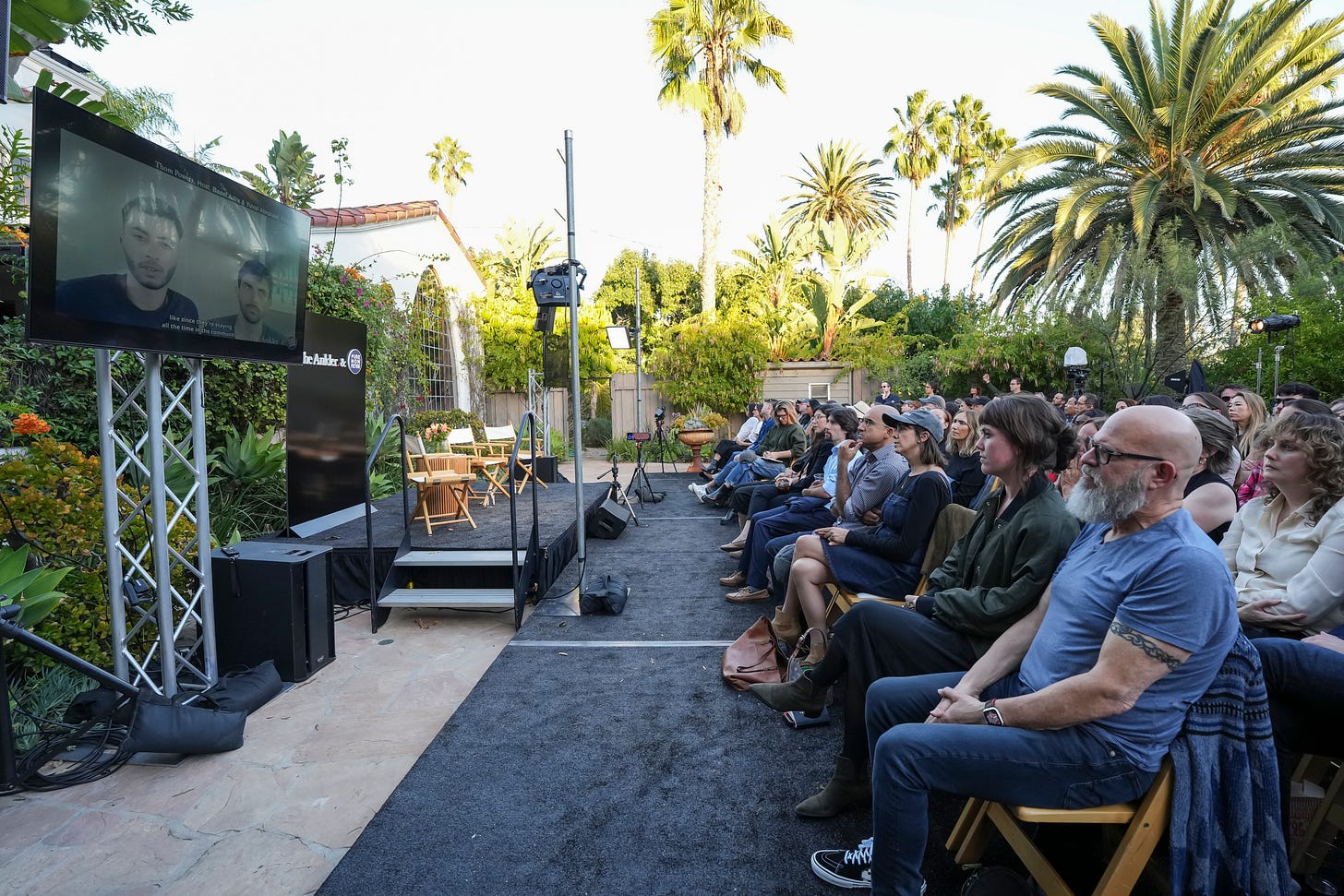
Similar themes of resistance and friendship drive Picturehouse’s Porcelain War, whose American co-director, Brendan Bellomo, said he worked with his Ukrainian collaborators — three artists who stayed in their country to fight against the Russian invasion — entirely by Zoom and with the help of a translator. “At first we thought, this is going to be impossible,” Bellomo said. “But we realized we were fluent in the universal language of art.”
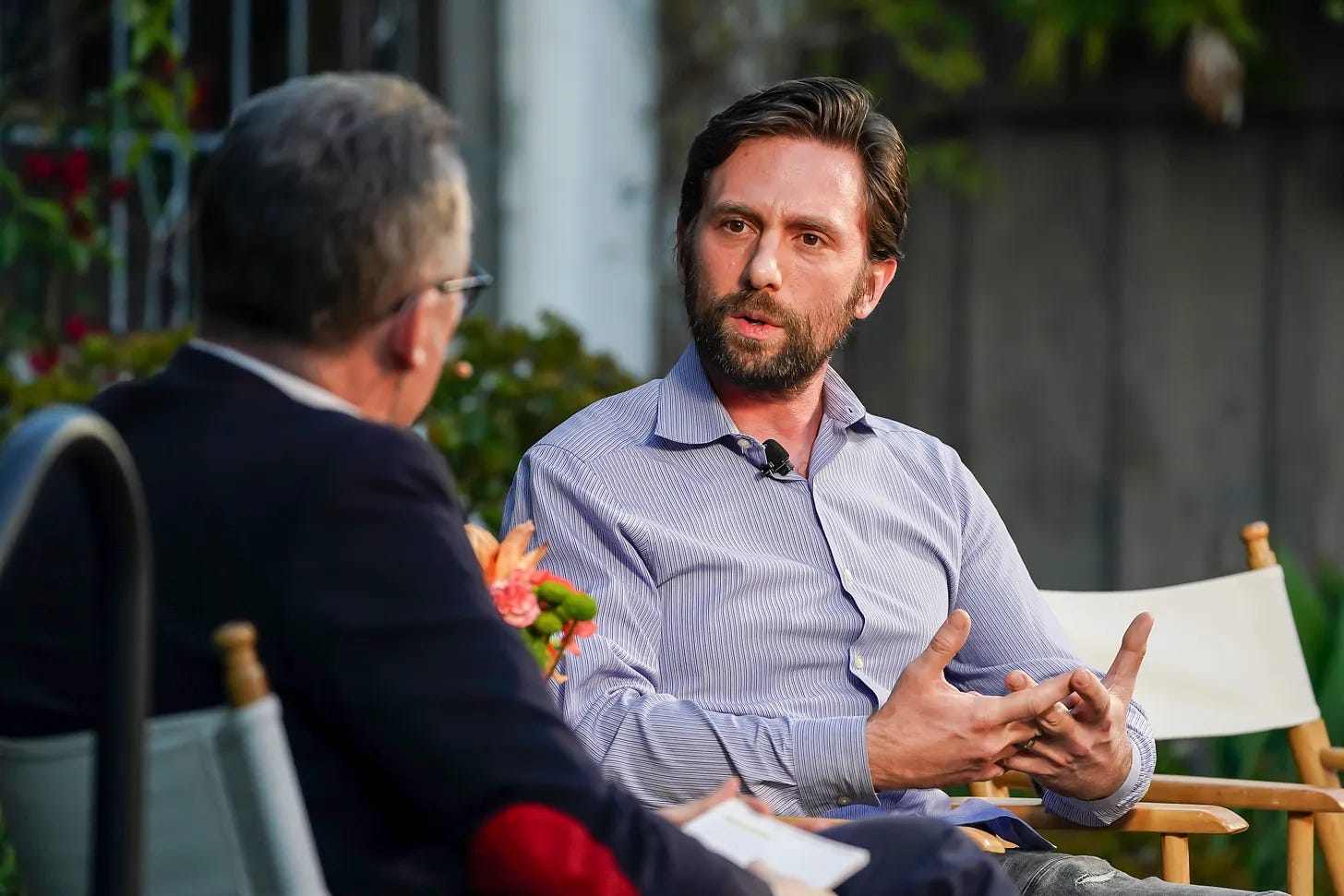
Filmmakers at the event also spoke about the power of authenticity. Carla Gutiérrez, director of Frida (Amazon MGM Studios), said she was inspired by the pioneering Mexican painter Frida Kahlo and “how honest and expressive she was in a really raw way about things that are very personal, very intimate.” Irene Taylor, director of I Am: Celine Dion (Amazon MGM Studios), described how the film’s unflinching look at Dion’s rare neurological disorder, Stiff Person Syndrome, helped the iconic singer transcend it. And Natalie Rae, director of Daughters (Netflix) recalled how her searingly emotional doc, which centers on a father-daughter dance at a prison in Washington, D.C., hinged on letting the children at the heart of the film guide it. “This is a story about the wisdom that comes from young girls,” she said.
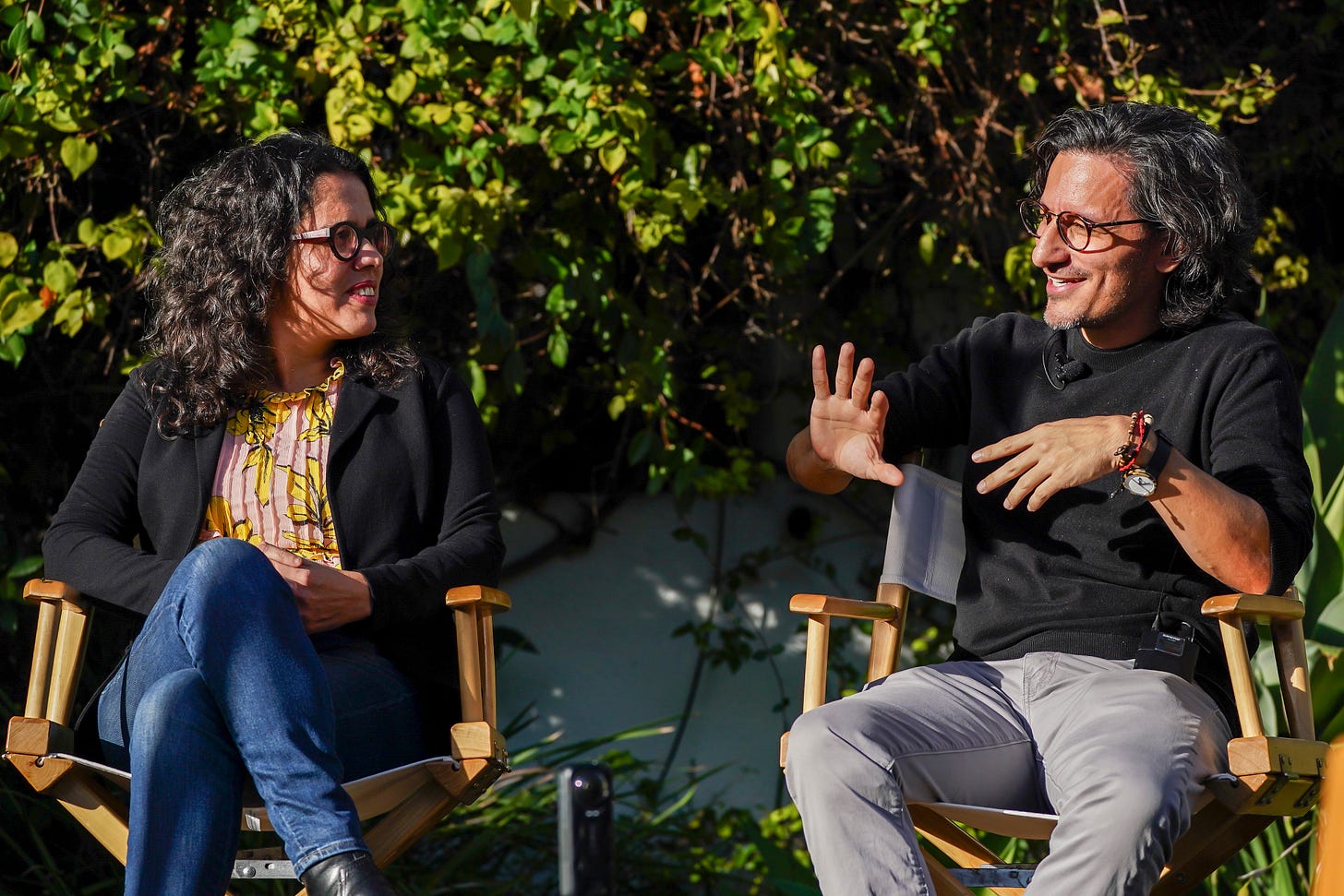
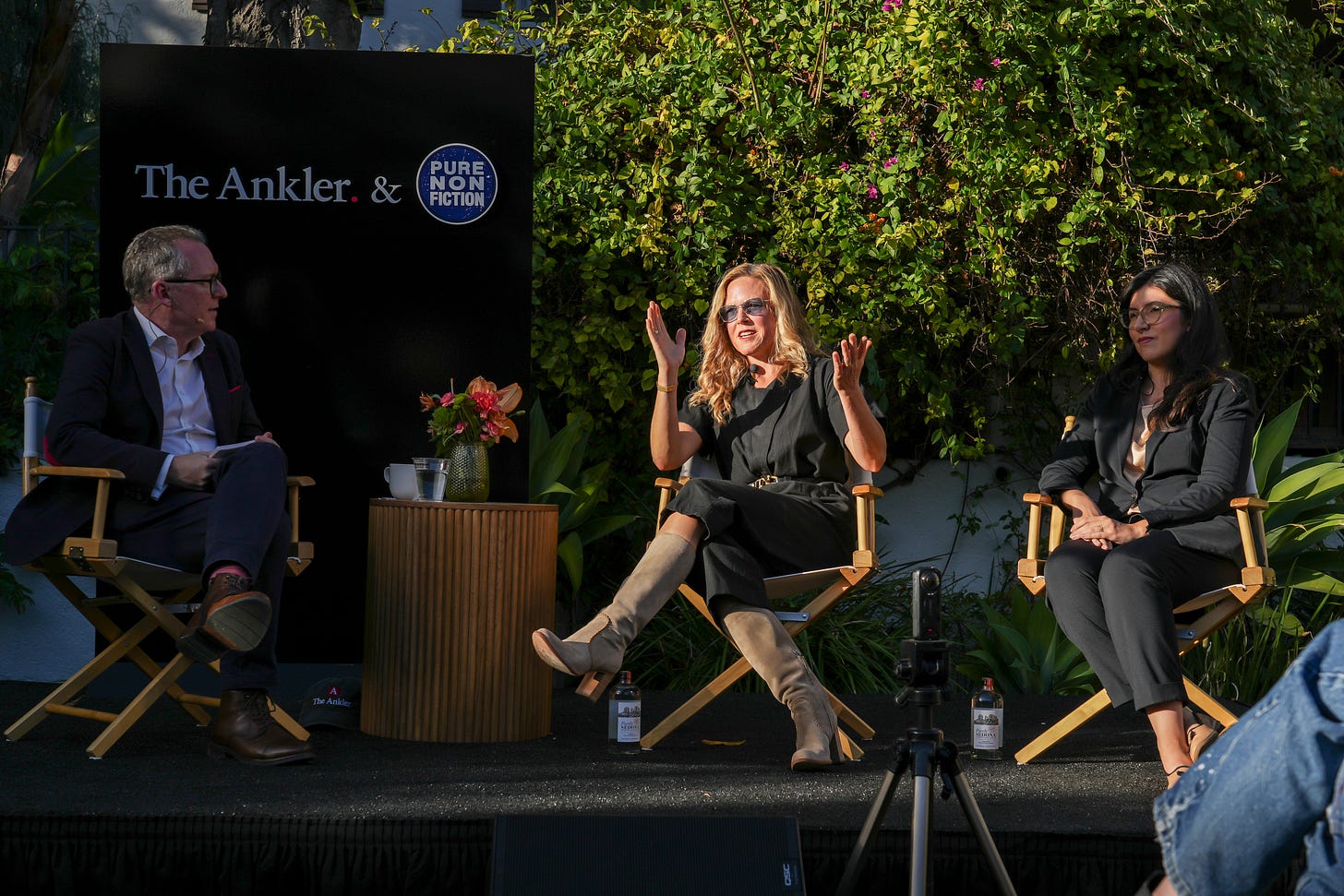
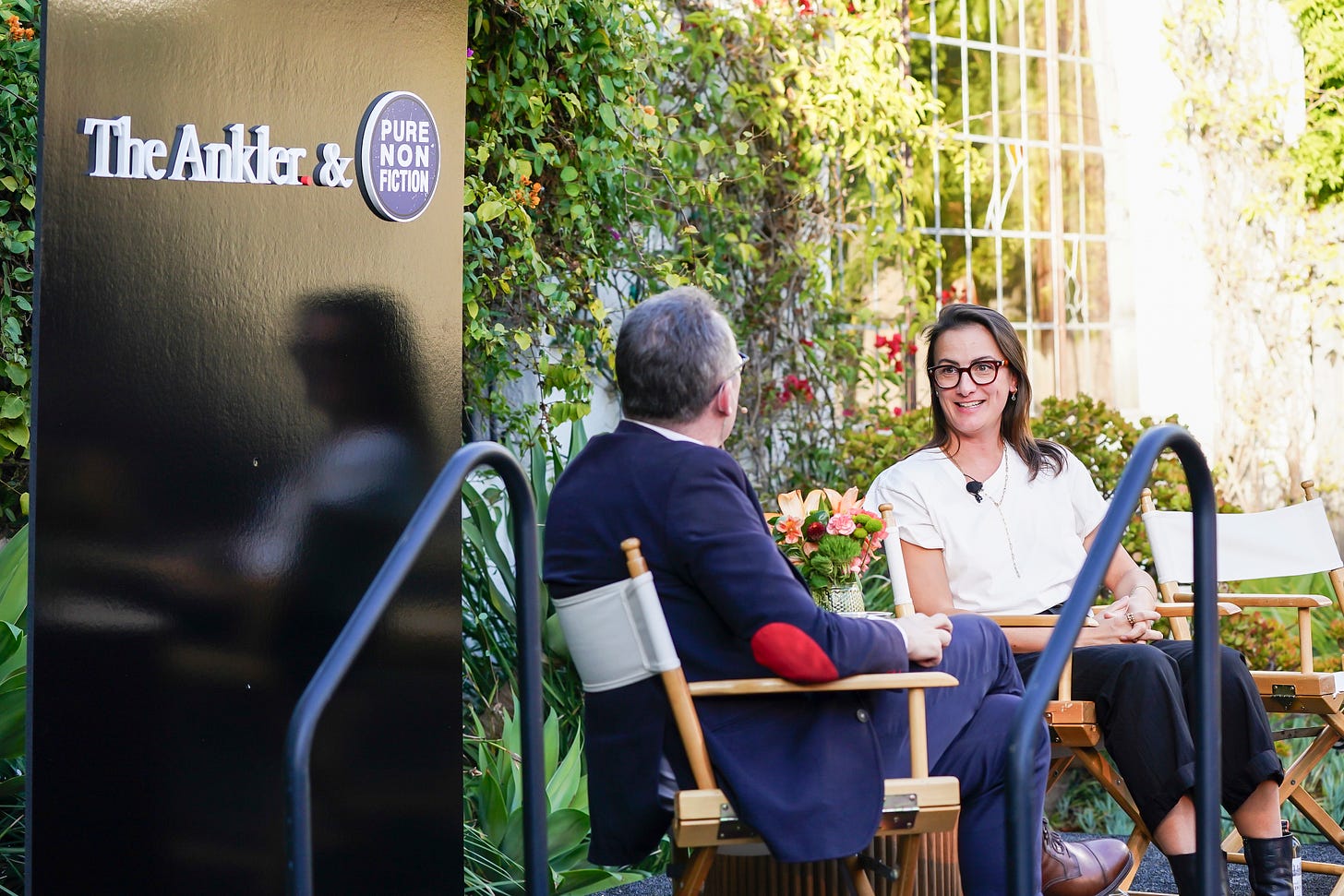
The mission of SUGARCANE (National Geographic Documentary Films) cut almost too close the bone for Julian Brave NoiseCat, who co-directed the film with Emily Kassie. “I did not set out to make a documentary about my dad's genocide trauma or my own, because that would be a kind of crazy thing to do,” NoiseCat told Powers, but he felt pulled to the project, an investigation into Canada’s residential schools where generations of First Nations children suffered abuse, sexual assault and cultural genocide.
It was only once he signed onto the doc that NoiseCat discovered it would focus on the very school that his own father had survived, and both men become part of the story. “To see how survivors of these institutions are reacting to this film and are also starting to talk about this history that we have kept inside, that we have suppressed for so long,” NoiseCat said, “it’s the greatest honor of my lifetime.”
